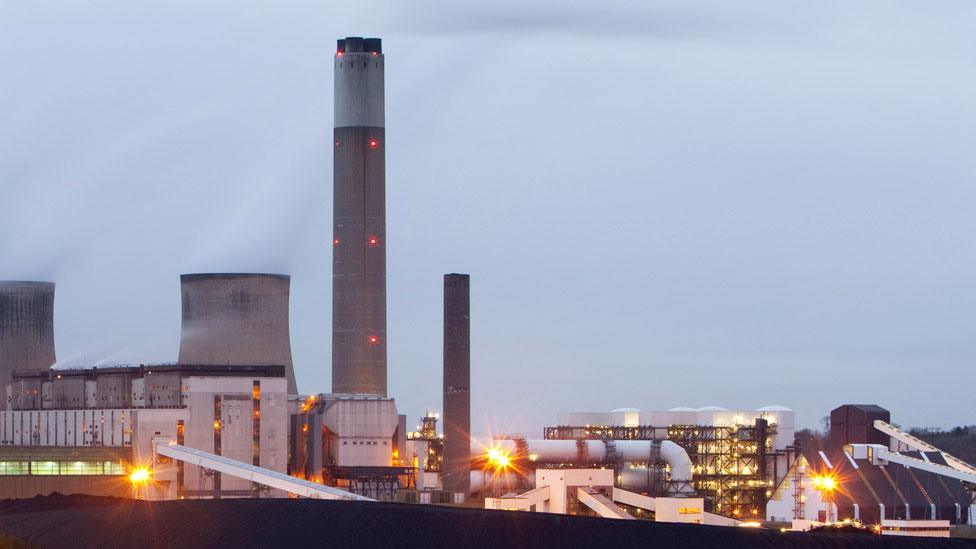London Marathon organisers to pay for carbon removal to reach net zero
- Published

Organisers aim to make the London Marathon net zero by 2030
Carbon dioxide (CO2) removal initiatives will form part of the London Marathon's efforts to become net zero by 2030, its organisers have said.
London Marathon Events (LME) said the initiative would be funded by a £26 climate levy on international runners which was introduced in 2021.
The funds will be used to pay carbon removal company CUR8 to pull 280 tonnes of CO2 from the air, LME said.
Organisers said they were being "more ambitious" on climate targets.
Other measures will also be introduced, such as switching from diesel to hydrotreated vegetable oil generators.
LME, which runs other sporting events such as the Brighton Marathon and Swim Serpentine, said it was looking to cut about 800 tonnes of carbon a year through removals and by reducing emissions.
It will also move to using electric vehicles while encouraging participants to use public transport.
The organisation is boosting its efforts in order to go net zero by 2030, rather than 2040 as originally planned.
'Blunt instrument'
Kate Chapman, head of sustainability for LME, said: "Looking where are we now, 17 years out, that just feels far too long. Clearly, we need to do everything we can to reduce those emissions.
"The fact that there is something that we can do then yeah, that has been a factor in helping us to be more ambitious."
There were about 9,920 international participants in 2022, with 95% of the total emissions coming from their travel, though this is mostly not included in the net zero calculation.
Instead, LME said it would use the "fairly blunt instrument" of the £26 climate levy, which is taken as an average of the different distances and methods of travel used by international participants to attend the event.
The company it is paying, CUR8, uses a variety of methods to remove CO2 from the atmosphere, such as improving soils and planting forests.
Some people are critical of carbon removal, saying it provides a false sense of security and takes focus off reducing emissions in the first place.
However, Mark Stevenson, one of CUR8's co-founders, said the firm does not tell anybody "you can claim net zero using us, because the language is evolving".
"What we say is you can claim that you are removing this amount of carbon on your journey to net zero," he explained.
In an earlier version of this story, we incorrectly suggested the climate levy on international competitors is a new measure. It has since been brought to our attention that it was introduced in 2021 and we have amended this article to reflect this.

Listen to the best of BBC Radio London on Sounds and follow BBC London on Facebook, external, X, external and Instagram, external. Send your story ideas to hello.bbclondon@bbc.co.uk, external
Related topics
- Published11 October 2023

- Published11 December 2023
